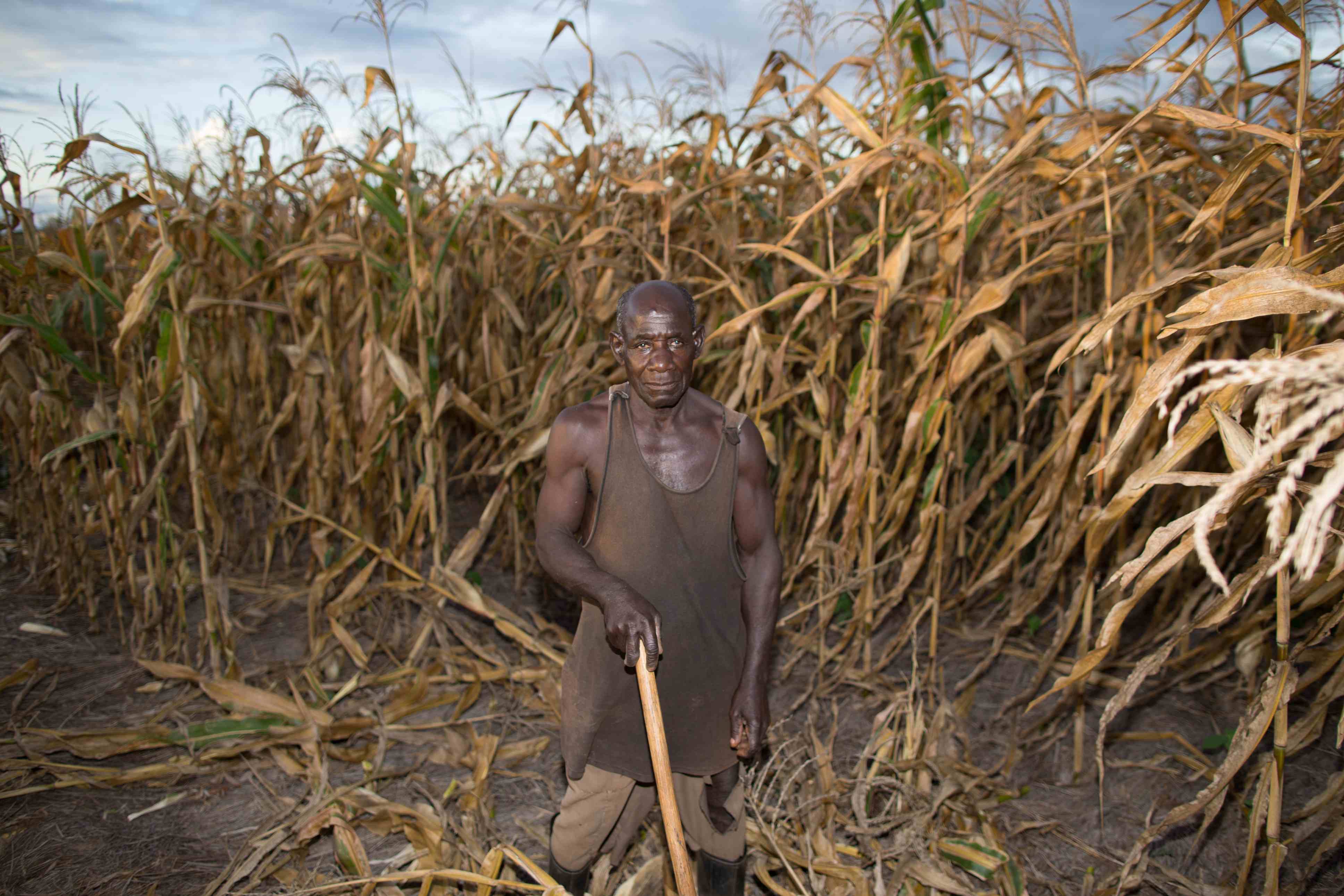Global climate change has put enormous pressure on the world’s agricultural systems to produce enough food for a rapidly growing world population.
An increasingly urgent issue is – how can we continue to feed our increasing populations sustainably and in a way that does not do further harm to the planet? And can climate smart agriculture (CSA) play an important part in ensuring that we can both boost productivity, and do so in a sustainable way?

Our ability to increase production on existing agricultural land is threatened by land degradation, water resource scarcity, increases in climate variability and extreme weather events associated with climate change. In order to meet the world’s demand for food, global agricultural systems must evolve to produce more food, with greater sustainability.
Climate smart agriculture offers a solution. Practices such as conservation agriculture have emerged as a farming method designed to enhance the sustainability of agricultural production by protecting soil from erosion and degradation, as well as protecting water and biological resources so that external inputs can be kept to a minimum.
Self Help Africa (SHA), an international non-governmental organisation, promotes and implements long-term rural development projects in Africa. By working with rural communities in ten African countries, the organisation is supporting farmers and their families to grow more and earn more from their crops. Self Help Africa provides training and technical support to assist households to produce more food, diversify their crops and incomes, and access markets for their surplus produce. The organisation also helps rural communities and supports sustainable agricultural solutions that enable rural farmers to adapt to and mitigate the effects of climate change.
Climate smart agriculture has been identified as vital in increasing agriculture contribution and mitigating the effects of climate change globally and in Zambia in particular. However, its implementation among smallholder farmers and other stakeholders has not reached its full potential. Despite being one of the forerunners in implementing conservation agriculture, which includes components of climate smart agriculture, Zambia is still facing challenges in implementing the latter. Some of the challenges faced in implementing and adopting CSA include the following:
- Limited knowledge and understanding regarding appropriate technologies and practices that are in line with CSA given that this is still a relatively new approach among smallholder farmers and many stakeholders in Zambia.
- Poor coordination and communication among CSA actors on approaches and practices of CSA. This has resulted in conflicting messages reaching smallholder farmers, which prevents the full adoption of CSA practices.
- Limited appreciation of CSA practices among agriculture extension practitioners in the public sector and those in development.
Against this background, Self Help Africa acknowledges long-term changes in the world’s climate are a reality. Climate variables are factored into the design of SHA’s work, particularly long-term investments in the tropics and subtropics. The food and agricultural sectors are particularly vulnerable to both short and long-term changes in the climate and atmospheric concentrations. As these sectors are central to human development, support for agriculture, and in particular for smallholder farmers, is pivotal to achieving the eradication of poverty and hunger under a changing climate and needs to be at the centre of the global response to climate change.
Smallholder producers and the rural poor in the tropics and subtropics are particularly vulnerable to the effects of climate change and climate variability. SHA’s agriculture interventions are thus designed to achieve ecological intensification of production systems while increasing the climate resilience of farmers, farming communities, agro-entrepreneurs, and food systems at large.
In Embracing Change A Strategic Plan 2017–2021, Self Help Africa commits to supporting sustainable livelihoods for smallholder farmers through:
- Improved food, nutrition and income security for smallholder farming families.
- Support to the establishment and growth of inclusive, profitable and sustainable agri- business.
- Support for the improvement of the policy environment for small-scale producers and their families.
As all these aspects are affected by climate change, SHA factors climate change into project design, tackling challenges at both grassroot and institutional level.
Conservation agriculture comes with several benefits for the smallholder farmer including;
- Timing and precision for farmers without tillage and machine access at low costs.
- Reduced costs of planting (seeding) through zero till, for farmers with machines.
- Reduced risk of smallholder production and improved planning ability.
- Improved productivity, establishment of crops timely and precise, better land and crop management.
- Highly appropriate for market-based crop interventions.
- As a central pillar, conservation agriculture provides a quick and reliable way to increase and stabilise productivity (reduce tillage costs and stabilise yields) without large capital investments.
- Farmers achieving higher productivity and production security (reduced risks), which will attract private sector.
- Improved productivity opens opportunities to participate in markets and generating better incomes.
It is clear that when conservation agriculture systems are well-designed and adapted to local conditions, they can improve the content of soil compared to conventional agricultural systems. This can lead to significant improvements in soil’s physical, chemical, and biological properties and productive capacity. Conservation agriculture may look different on each farm but the goal is the same, optimising farms for current and future generations while providing a safe, sustainable food supply.








